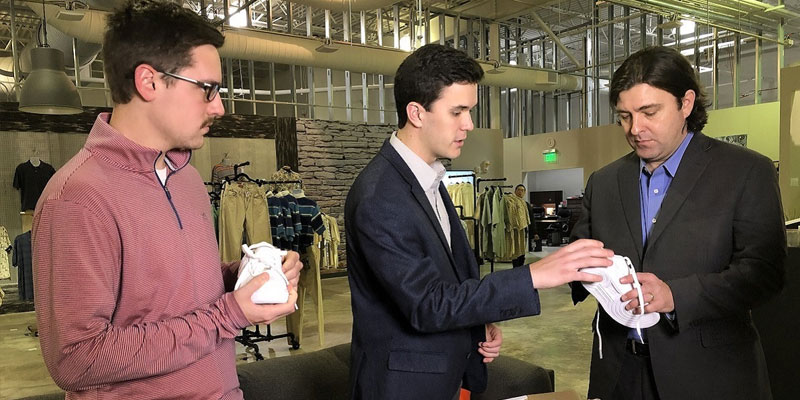Communication is much easier when you speak the same language. But for manufacturers, wholesalers and retailers around the globe, the digital “language” of product data varies from company to company — causing error and inefficiency to the tune of $181 billion, according to an Auburn University study.
Auburn researchers have a simple idea: Let’s all use a common language and a common platform throughout the supply chain for communicating product information. It is not a simple solution, though, since each stakeholder has a different vocabulary and methodology — maybe one uses the term “carton,” another says “case” and both use different metrics for counting the contents of those containers.
The Chain Integration Project, or CHIP, initiative at Auburn’s RFID Lab is working to implement standards across supply chains and has concluded its proof-of-concept phase, which used blockchain technology to enable data sharing between supply chain partners in a common language and on a common platform.
A blockchain serves as a repository for digital transactions related to individual products as they pass through the supply chain. RFID systems capture product data such as location, timestamp and unique identification numbers, and each time a product is detected by these systems, a new transaction is created and sent to the blockchain. Different stakeholders can view and make informed decisions based upon these virtual snapshots from various points in an item’s lifecycle.
Auburn’s RFID Lab research forges blockchain, supply chain link from Alabama NewsCenter on Vimeo.
The adoption of item-level identification for retail products actually began 15 years ago when companies began using RFID tags, QR codes and other serialized data carriers. However, there has yet to be an effective, industry-wide solution for exchanging serialized data between business partners, according to the study.
“In regard to retail, this project is the first of its kind to support serialized data exchange among supply chain partners via blockchain,” said Allan Gulley, RFID Lab research fellow. “We want to enable trade partners to share granular, item-level data with one another — a capability that systems today do not support. With a tremendous amount of support from our corporate sponsors, we were able to successfully show that blockchain can be used to facilitate data exchange and enhance visibility throughout the supply chain.”
Companies need to see more information up and down the supply chain in order to combat counterfeiting, settle disputes with trade partners and cut down on inventory shrinkage in stores, Gulley added. In theory, this can be accomplished by using blockchain, which acts as a shared ledger where multiple stakeholders can see and store data.
Working with Nike, PVH Corp., Herman Kay, Kohl’s and Macy’s, the researchers were able to successfully integrate item-level data streams from source to store, connecting the dots between isolated touch points and creating a history for each product that passed through the supply chain. Altogether, 222,974 products were recorded on the blockchain from 12 different supply chain nodes.
A whitepaper detailing the study is available on the RFID Lab website.
“This is the future of commerce between retailers and suppliers,” said Michael Graen, owner of Collaboration LLC and a 30-year veteran of the retail industry. “It proved that suppliers and retailers can exchange serialized data using blockchain to increase visibility into product flow.”
The CHIP initiative is supported by a consortium of 22 brands, retailers, logistics providers and solution providers that are organized into the Auburn Blockchain Working Group.
“CHIP is a great example of the university’s research being put into practice,” said Auburn Provost Bill Hardgrave, a leading RFID researcher. “In addition to helping companies, it will ultimately benefit the consumer. It will ensure that you get the right product at the right time.”
With the proof-of-concept phase completed, the working group will conduct a study focused on the financial implications of standardized data-capture systems at various pain points, or problem areas, in the supply chain.
“We will seek to determine the business-value implications of using blockchain and serialized data to eliminate claims and chargebacks that occur between brands and retailers,” said Justin Patton, director of Auburn’s RFID Lab.
Providing confidentiality for companies’ sensitive information is also a key aspect of the project.
“Confidentiality is the number one concern that most companies have when they begin their blockchain journey, and it is very understandable,” Gulley said. “Protocols and permissions must be put in place to prevent the inclusion of competitively sensitive information, as we did in the CHIP proof-of-concept.”
This story originally appeared on Auburn University’s website.
Courtesy of Alabama NewsCenter)













